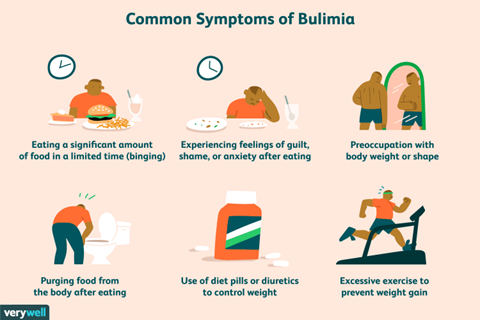A nurse is collecting data from a client who received IV morphine for postoperative pain. The nurse should identify that which of the following findings indicates a therapeutic response to the medication?
The client's blood pressure has been reduced.
The client exhibits diaphoresis
The client is not grimacing
The client has an elevated heart rate
The Correct Answer is C
Answer: (C) The client is not grimacing
Rationale:
A) The client's blood pressure has been reduced:
While morphine can lower blood pressure due to its vasodilatory effects, a reduction in blood pressure is not necessarily a primary indicator of a therapeutic response to pain relief. It is more important to assess pain relief directly through the client's subjective experience and behavior rather than focusing on vital signs alone.
B) The client exhibits diaphoresis:
Diaphoresis, or sweating, can occur as a side effect of morphine administration but does not indicate that the medication is effectively relieving pain. In fact, diaphoresis might signal an adverse reaction or discomfort rather than a therapeutic effect.
C) The client is not grimacing:
The absence of grimacing suggests that the client's pain has decreased, which is a direct indicator of a therapeutic response to morphine. Observing a reduction in pain-related behaviors, such as grimacing, is a key assessment for determining the effectiveness of pain management in postoperative clients.
D) The client has an elevated heart rate:
An elevated heart rate may be a sign of unresolved pain or a side effect of morphine but is not a clear indicator of pain relief. Effective pain management with morphine typically results in a decrease in sympathetic nervous system responses, such as a high heart rate, rather than an increase.
Nursing Test Bank
Naxlex Comprehensive Predictor Exams
Related Questions
Correct Answer is C
Explanation
The correct answer is Choice C.
Choice A rationale:
- While maintaining a distance of 3 feet can reduce the risk of direct contact transmission, it is not the most effective measure for contact isolation precautions.
- Contact isolation aims to prevent the spread of pathogens that can be transmitted through direct or indirect contact with the infected person or contaminated objects.
- A distance of 3 feet may not be sufficient to prevent transmission via droplets or fomites (inanimate objects that can harbor infectious agents).
Choice B rationale:
- Sterile gloves are not routinely required for contact isolation precautions.
- They are primarily used for sterile procedures or when there is a risk of exposure to blood or body fluids.
- For contact isolation, standard clean gloves are usually sufficient to protect against transmission via direct contact.
Choice C rationale:
- Leaving equipment that is used routinely in the client's room is a crucial part of contact isolation precautions.
- This practice prevents the spread of infection by minimizing the movement of potentially contaminated items outside of the isolation room.
- Equipment like stethoscopes, blood pressure cuffs, and thermometers should be dedicated to the client's use and not shared with other patients.
Choice D rationale:
- Negative-pressure airflow rooms are used for airborne isolation precautions, which are designed to prevent the spread of pathogens that can be transmitted through the air.
- Contact isolation does not specifically require a negative-pressure room, as the primary mode of transmission is through direct or indirect contact, not airborne particles.
Correct Answer is D
Explanation
d. Observe the client for 1 hr after meals.
Explanation:
The correct answer is d. Observe the client for 1 hr after meals.
For a client with bulimia nervosa, it is important to closely monitor their behavior after meals to prevent purging behaviors and ensure their safety. Observing the client for 1 hour after meals allows the nurse to provide support, encourage healthy coping strategies, and intervene if necessary to prevent purging episodes.
Option a, administering bupropion 1 hour before meals, is not an appropriate intervention for bulimia nervosa. Bupropion is an antidepressant medication that may be used for certain mood disorders, but it is not the primary treatment for bulimia nervosa.
Option b, allowing the client access to food throughout the day, is not a recommended intervention for a client with bulimia nervosa. Clients with bulimia nervosa often struggle with impulse control and binge eating behaviors. Allowing unrestricted access to food may exacerbate their symptoms and increase the risk of binge-purge cycles.
Option c, weighing the client once weekly, is not the most appropriate intervention for managing bulimia nervosa. While weight monitoring may be a component of treatment, it should not be the sole focus. The treatment for bulimia nervosa involves addressing the underlying psychological and behavioral factors contributing to the disorder.
By recommending the observation of the client for 1 hour after meals, the nurse can provide necessary support, monitor the client for potential purging behaviors, and promote a safe and therapeutic environment for their recovery from bulimia nervosa.

Whether you are a student looking to ace your exams or a practicing nurse seeking to enhance your expertise , our nursing education contents will empower you with the confidence and competence to make a difference in the lives of patients and become a respected leader in the healthcare field.
Visit Naxlex, invest in your future and unlock endless possibilities with our unparalleled nursing education contents today
Report Wrong Answer on the Current Question
Do you disagree with the answer? If yes, what is your expected answer? Explain.
Kindly be descriptive with the issue you are facing.
